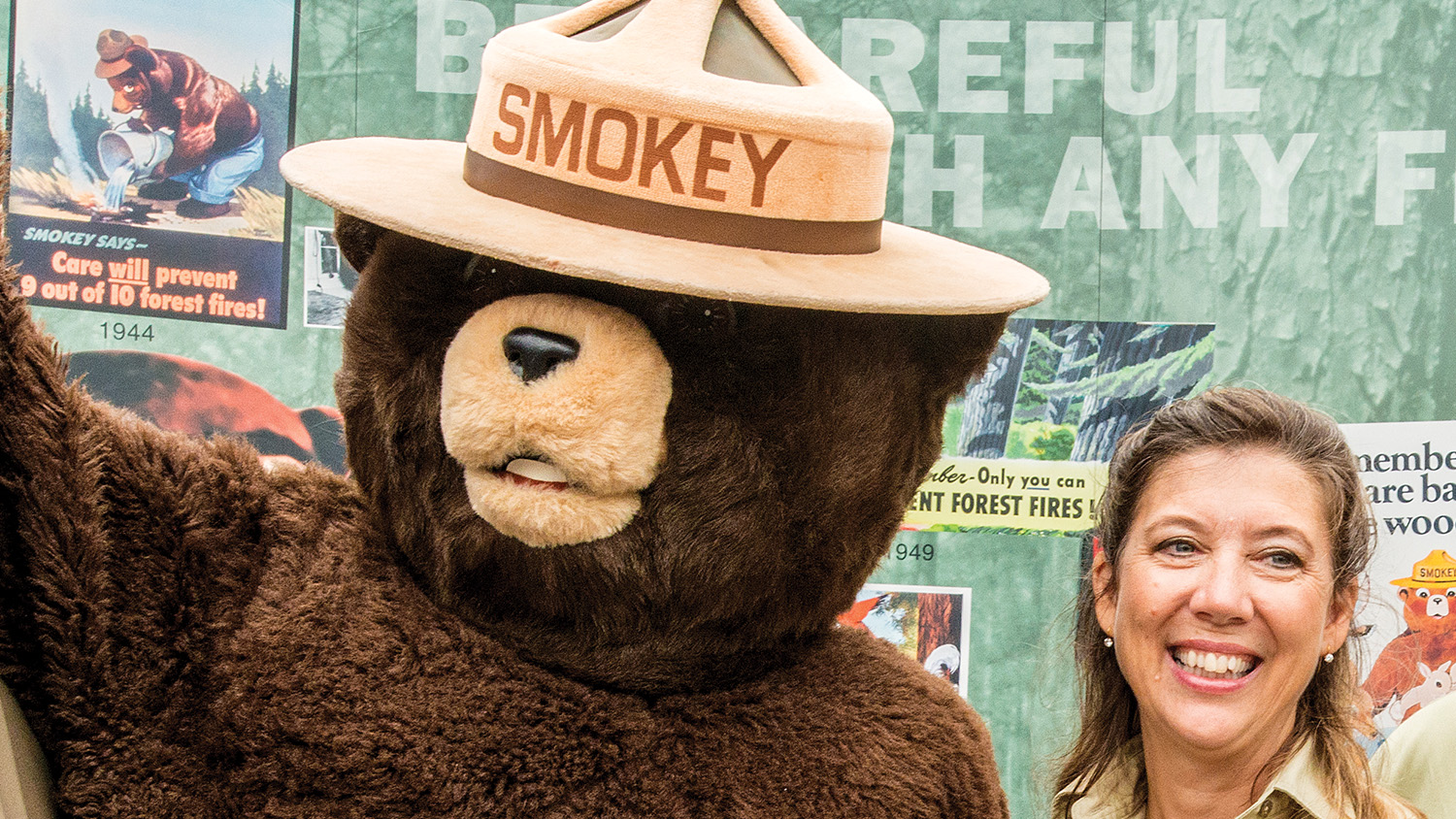Bear Necessities
Gwen Beavans ’88 works with Smokey Bear to spread the word about preventing wildfires.

By David Menconi
As a wildfire prevention specialist with the U.S. Forest Service, Gwen Beavans ’88 frequently enlists celebrities to do fire-prevention public service announcements — country music icon Dolly Parton, standup comic Jeff Foxworthy and the late actress Betty White among them. But the biggest celebrity of all is Smokey Bear, the agency’s venerable mascot. Beavans lists “managing Smokey” among her job responsibilities, directing licensing and appearances.
“He is the national symbol for wildfire prevention,” says Beavans, who lives in Manassas, Va. “He turned 75 a few years ago and we created some things for that, like an exhibit at the National Zoo in D.C. And we had him on the Today show. ‘Only you can prevent wildfires,’ everyone knows that one.”
Beavans, 58, began college wanting to focus on wind and solar energy, which took her into civil engineering. But forestry management seemed like a better fit, with environmental education emerging as Beavans’ specialty. “I’ll go into a community for 14 days to assess, figure out the top fire causes, develop messaging, find someone local to give that message and try to get everybody working together,” she says. “It always feels good when I get teams to collaborate.”
Given the headlines about out-of-control wildfires across the U.S. and Canada in recent years, it seems people are causing more of them than ever before. But that’s not the case.
The difference now is that the fires we do have are bigger and more intense.
“We’ve actually seen declines in the number of human-caused wildfires,” Beavans says. “The difference now is that the fires we do have are bigger and more intense due to climate change, especially out West. The Southeast actually has more fires, they’re just easier to put out because of higher humidity levels.”
Still, no region has a monopoly on carelessness when it comes to causing wildfires. “Nationally, nearly nine out of 10 wildfires are started by humans,” she says. “You see some crazy things. Overheated cars parked in tall dry grass can start fires, or cars pulling trailers — chains dragging on the pavement will send sparks into dry brush. All we can do is tell people, ‘Don’t do that!’”


